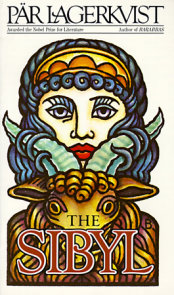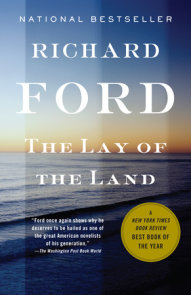READERS GUIDE
The questions, discussion topics, and author biography that follow are intended to enhance your group’s reading of Ha Jin’s first novel, In the Pond.Introduction
In the Pond is the story of Shao Bin, a young man who works as a pipe fitter in a fertilizer factory in a northern provincial commune. He is also a self-taught scholar and artist, convinced he is worthy of a better fate than he has been assigned. As the tale opens, he and his wife have again been denied an apartment in Workers’ Park, a relatively luxurious new apartment compound, and for at least another year must continue living with their child in a dirt-floored dormitory room. Enraged at the injustice of being passed over once again, Bin lampoons the commune’s two Party secretaries in a satirical cartoon, which is published in a newspaper, effectively making them his enemies. The conflict escalates in a series of surprising and often amusing events, as Shao Bin proves himself capable of taking his grievance all the way to Beijing–and eventually winning himself a position of which he can be proud.Questions and Topics for Discussion
1. Ha Jin has chosen a quotation from Gogol’s Dead Souls as the epigraph to In the Pond. What is he saying about his protagonist? In what sense is Shao Bin a rogue? In what sense, if any, is he a virtuous man?
2. What does the way Shao Bin handles his grievance against his superiors reveal about his character? He thinks to himself, "Who were Liu Shu and Ma Gong? Two small cadres with glib tongues, uncouth and unlettered. They were wine vessels and rice bags, their existence only burdening the earth, whereas he had read hundreds of books and was knowledgeable about strategies" [p. 35]. Do you consider him heroic and principled, or arrogant and foolish? Is he, on the basis of his talents and energies, truly deserving of a better position than he has?
3. In many ways this novel is about the workings of power and how people go about getting what they want. Given that the novel portrays a political system very different from our own, do you consider that issues of power and influence work differently in this novel than they do here in America, say, in a corporate setting?
4. If one of the purposes of art is to awaken people’s minds and to change society, do you find it odd that artists are employed in this novel to create propaganda for the state? Would you consider this novel a satire? What would you guess is the author’s perspective on the events of the novel, and on the communist system that he left behind?
5. What does Shao Bin’s description of his ink stone [p. 64] tell us about him? Does his dedication to his art redeem the less positive aspects of his character?
6. There are several scenes, particularly in Chapter 9, where physical brutality is used to comic effect. Why does Shao Bin engage in such behavior, in light of his feelings of superiority to Liu Shu and Ma Gong? To what purpose is Ha Jin using humor in this novel?
7. After creating one of his best drawings, Shao Bin realizes that "it was the misery and rage that had driven the brush to make such a breakthrough in his art. He realized anger was also a source of power, which the artist ought to convert into creative energy" [p. 122]. Is Shao Bin in fact saved by his anger? If you have read Waiting, how would you compare the characters of Shao Bin and Lin Kong?
8. Are you surprised, given Shao Bin’s abrasive personality, that he is embraced so readily by the friends of Yen Fu? Are you surprised that his cause is adopted by the journalists in Beijing? Why do you suppose this is?
9. Yen Fu calls attention to the novel’s title when he wonders why Bin is working in the fertilizer plant: "How could a small pond like this contain such a big fish? He had vaguely heard that Bin was teaching the fine arts somewhere" [p. 63]. How does Ha Jin’s choice of title affect your sense of the events that take place? Does the novel’s ending change the meaning of "the pond"?
10. As Shao Bin prepares a letter of complaint to the Party secretary, "A strong sense of justice and civil duty rose in him. An upright man ought to plead in the name of the people. He believed he was going to voice not only his own discontent and indignation but also the oppressed brothers’ and sisters’. Yes, he wanted to speak for all the workers in the plant" [p. 20]. How does the ending of the novel–the resolution of the plot’s conflicts–resonate with these inspired thoughts? How does Ha Jin leave you feeling about his protagonist?





















